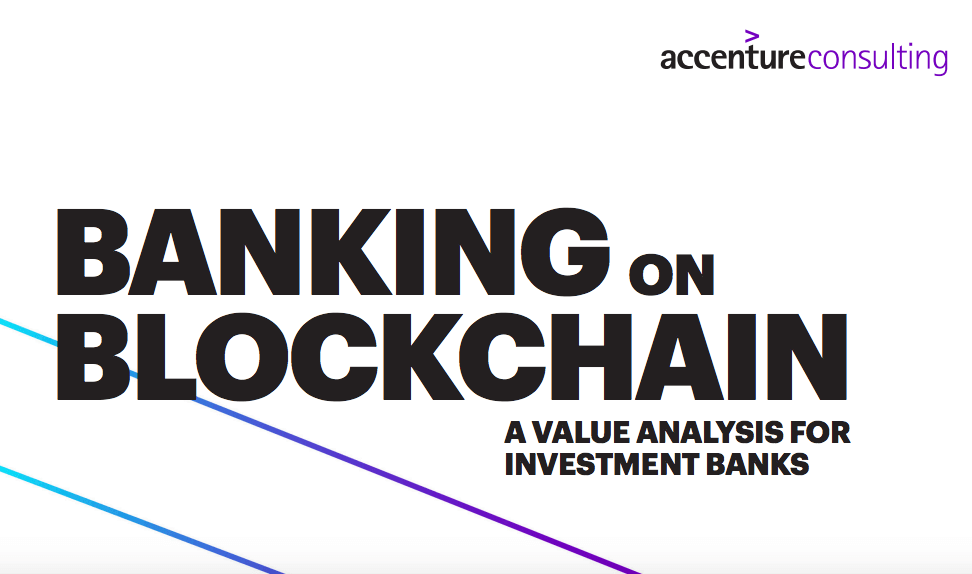
Blockchain technology can help investment banks cut costs and deliver savings of more than 30% across the middle and back office, translating to an economy of US$8 billion to US$12 billion annually, according to a joint analysis by Accenture and operations-benchmarking leader McLagan.
This is one of the findings of the report “Banking on Blockchain: A Value Analysis for Investment Banks.” Accenture used McLagan’s aggregated operational cost data from eight of the world’s largest investment banks to determine the real costs benefits of using blockchain.
According to the report, investment banks currently spend around two-thirds of their IT budgets supporting legacy back-office infrastructure, plus billions of dollars more each year on cost reduction initiatives.
Blockchain’s components such as cryptographic hashes, distributed databases and consensus building, create a powerful new form of data sharing and asset transfer capable of eliminating intermediaries, central third parties and expensive reconciliation processes.
By leveraging the technology, investment banks can make significant savings on costs related to trade confirmations, reconciliation, cash management, asset optimization and other exceptions-based business logic processes. Blockchain can also help optimize settlement by reducing the time for delivery versus payment, and enable decommissioning of large parts of today’s back office infrastructure.
According to the report, blockchain can bring savings for banks’ core middle- and back-office processes in areas such as:
Finance reporting where costs could shrink by 70% as a result of the optimized data quality, transparency and internal controls;
Compliance with a drop by 30% to 50% at the product level due to the improved transparency and auditability of transactions;
Centralized operations supporting functions such as Know-Your-Customer and client onboarding could see costs reduced by 50% by the establishment of more efficient processes;
Business operations such as trade support, middle office, clearance, settlement and investigations could see their operating costs being lowered by 50%.
Industry investment in blockchain and crypto technology has accelerated rapidly with capital markets firms investing as much as US$280 million in 2016, according to Greenwich Associates, an independent benchmarking research firm.
“Given the tremendous cost of data reconciliation – which is part of every aspect of the capital markets industry – it’s no surprise that we’ve seen a significant amount of investment in blockchain technology. But, as with any emerging technology, understanding what these investments might yield is a challenge,” said David Treat, managing director for Accenture’s financial services industry blockchain practice.
“As we move into production implementations, bank executives will need a clear roadmap for how and where to rethink their strategies and redesign their operating models, which is why we undertook this unique study.”
According to Richard Lumb, Accenture’s group chief executive for financial services, regulatory and compliance costs as well as revenue pressures have forced capital markets institutions to invest in emerging technologies in hopes to find ways to improve profitability.
A report by the Financial Times claims that the world’s biggest investment banks saw combined revenues sink by 15% in the first of 2016, the most since the aftermath of the financial crisis.
“Blockchain technology could significantly change the cost structure of investment banks over the next decade,” said Chris Blain, partner at McLagan.
“The technology represents a potentially important breakthrough at a time when leading investment banks are looking at myriad ways to rebuild their returns on equity.”

